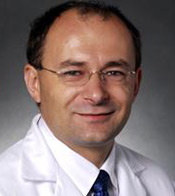Summary
Definition
History and exam
Key diagnostic factors
- sintomas positivos
- sintomas negativos
- distúrbios de percepção
- delírios
- perturbações nas emoções
- afeto incongruente
- distúrbios de fluxo e forma de pensamento
- anormalidades cognitivas
- sintomas deficitários
- episódios depressivos maiores
- episódios maníacos
Other diagnostic factors
- deficit neurológico
- história familiar
- comprometimento funcional
- distúrbios de comportamento
Risk factors
- história familiar de esquizofrenia
- uso de substâncias
- idade do pai no nascimento do paciente
- estresse psicológico
- ambiente
Investigações diagnósticas
Primeiras investigações a serem solicitadas
- exame de urina para detecção de drogas
- rastreamento de infecções sexualmente transmissíveis
- hemograma completo
- testes da função tireoidiana
Investigações a serem consideradas
- exames laboratoriais para excluir causas orgânicas
- tomografia computadorizada/ressonância nuclear magnética (TC/RNM) de crânio
- eletroencefalograma (EEG)
Algoritmo de tratamento
episódio psicótico agudo
transtorno de episódios múltiplos
Colaboradores
Autores
Adrian Preda, MD

Professor of Clinical Psychiatry
Department of Psychiatry and Human Behavior
University of California, Irvine School of Medicine
Irvine
CA
Disclosures
AP was paid for consultancy work for GLG and Guidepoint.
Robert G. Bota, MD

Associate Clinical Professor of Psychiatry
University of California
Irvine
CA
Disclosures
RGB declares that he has no competing interests.
Acknowledgements
Dr Adrian Preda and Dr Robert G. Bota would like to gratefully acknowledge Dr Bao-Nhan Benjamin Nguyen, who contributed to the updating of this topic.
Disclosures
BN declares that he has no competing interests.
Peer reviewers
Kemal Sagduyu, MD
Professor of Psychiatry
University of Missouri Kansas City
Kansas City
MO
Disclosures
KS declares that he has no competing interests.
William T. Regenold, MDCM
Associate Professor of Psychiatry
University of Maryland School of Medicine
Baltimore
MD
Disclosures
WTR declares that he has no competing interests.
Peer reviewer acknowledgements
BMJ Best Practice topics are updated on a rolling basis in line with developments in evidence and guidance. The peer reviewers listed here have reviewed the content at least once during the history of the topic.
Disclosures
Peer reviewer affiliations and disclosures pertain to the time of the review.
References
Key articles
Abrams DJ, Rojas DC, Arciniegas DB. Is schizoaffective disorder a distinct categorical diagnosis? A critical review of the literature. Neuropsychiatr Dis Treat. 2008 Dec;4(6):1089-109.Full text Abstract
Harrow M, Grossman LS, Herbener ES, et al. Ten-year outcome: patients with schizoaffective disorders, schizophrenia, affective disorders and mood-incongruent psychotic symptoms. Br J Psychiatry. 2000 Nov;177:421-6.Full text Abstract
Cheniaux E, Landeira-Fernandez J, Versiani M. The diagnoses of schizophrenia, schizoaffective disorder, bipolar disorder and unipolar depression: interrater reliability and congruence between DSM-IV and ICD-10. Psychopathology. 2009;42(5):293-8. Abstract
Jäger M, Haack S, Becker T, et al. Schizoaffective disorder: an ongoing challenge for psychiatric nosology. Eur Psychiatry. 2011 Apr;26(3):159-65. Abstract
Turner DT, van der Gaag M, Karyotaki E, et al. Psychological interventions for psychosis: a meta-analysis of comparative outcome studies. Am J Psychiatry. 2014 May;171(5):523-38. Abstract
National Institute for Health and Care Excellence. Psychosis and schizophrenia in adults: prevention and management. March 2014 [internet publication].Full text
Reference articles
A full list of sources referenced in this topic is available to users with access to all of BMJ Best Practice.
Differentials
- Esquizofrenia
- Transtorno psicótico induzido por substâncias
- Demência com psicose
More DifferentialsGuidelines
- International statistical classification of diseases and related health problems, 11th revision (ICD-11)
- Diagnostic and statistical manual, 5th edition, text revision (DSM-5-TR)
More GuidelinesPatient information
Transtorno esquizoafetivo
More Patient informationLog in or subscribe to access all of BMJ Best Practice
Use of this content is subject to our disclaimer